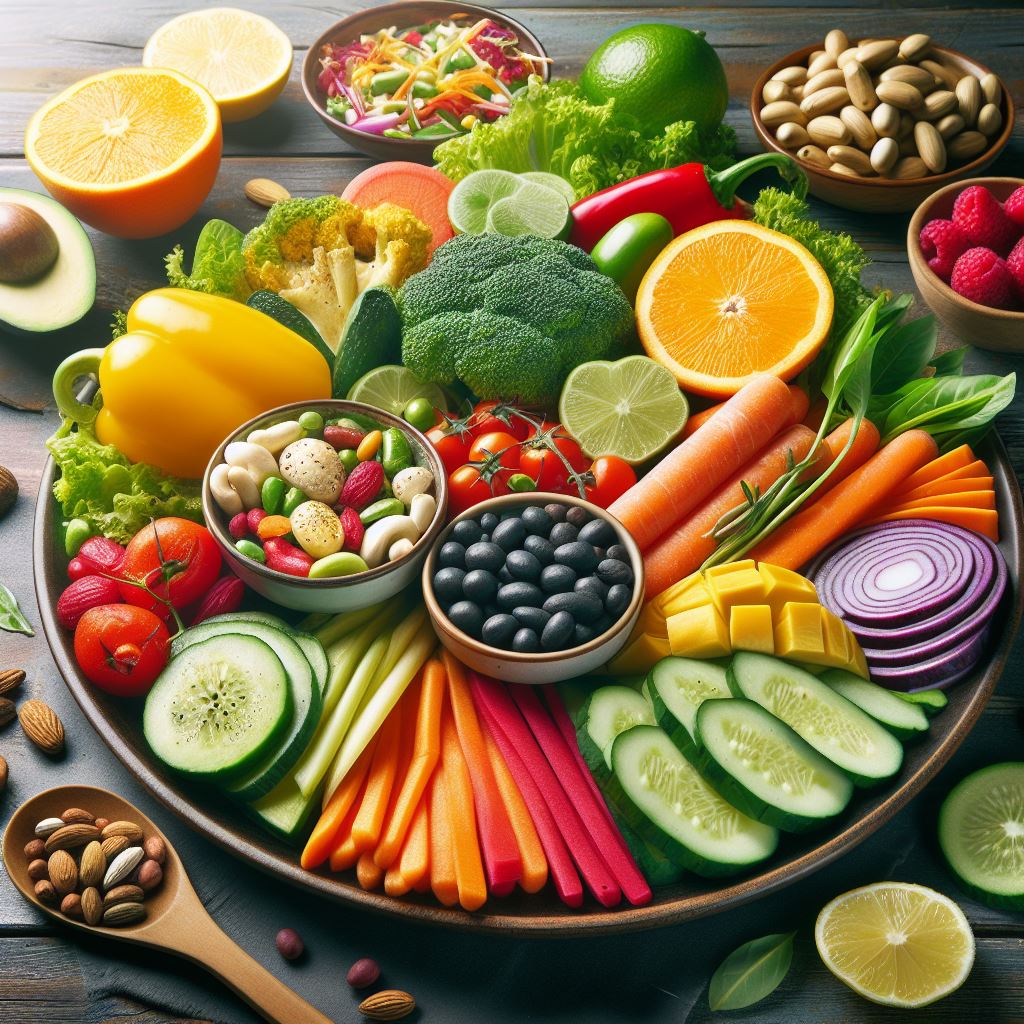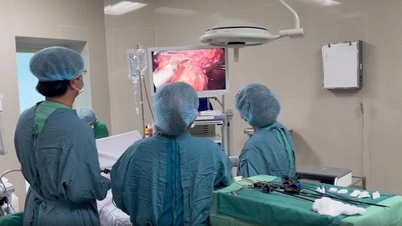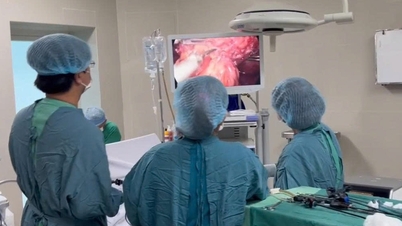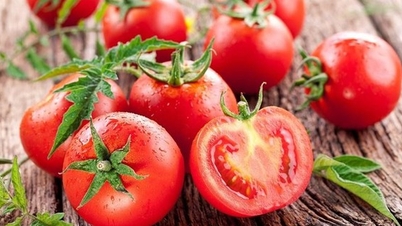1. The importance of diet for asthma patients
Asthma is a chronic inflammatory condition of the airways. The disease causes swelling, increased mucus secretion, and edema of the airway mucosa, making it difficult for the patient to breathe, wheezing, and chest tightness...
Asthma can be well controlled with proper treatment, close monitoring, regular use of preventive medication and periodic check-ups to assess the condition. Therefore, patients need to see a specialist and strictly follow the doctor's treatment instructions.
In addition to controlling and using good preventive medication, people with bronchial asthma need to follow a scientific nutritional regimen to increase resistance, improve health and prevent disease recurrence.
Although there is no specific food that is best for asthma patients, a balanced and healthy diet will contribute to effective disease control.
For people with asthma, eating a healthy, balanced diet with the right foods and nutrients can improve overall health, including lung function. A healthy diet can also help people maintain a healthy body weight, as being overweight can worsen asthma symptoms.

Asthma makes it difficult to breathe, wheeze, and have chest tightness...
2. Essential nutrients for people with asthma
There is no specific diet for asthma, so people with asthma should follow a healthy, nutritious diet and drink enough water.
Eat lots of fruits and vegetables
People with asthma should eat plenty of fruits and vegetables. These foods are rich in vitamins and minerals that help supplement nutrition, have anti-inflammatory effects and strengthen the body's resistance. These foods are not only low in calories to help maintain a reasonable weight, but also contain essential nutrients that can support healthy lung function.
Fruits and vegetables are rich in antioxidants such as beta-carotene, vitamin C and vitamin E. Studies have shown that a diet rich in fruits and vegetables rich in vitamins and antioxidants, especially apples, oranges and bananas, can reduce the risk of developing asthma and reduce wheezing.
Studies show that a diet that is mainly plant-based, especially fresh fruits, vegetables and whole grains, and that limits dairy and fatty meat intake, can also prevent, slow the progression and improve asthma symptoms.
These foods are rich in vitamins, minerals and antioxidants that help supplement nutrition, have anti-inflammatory effects and strengthen the body's resistance. Especially foods rich in vitamins A, D, E... Antioxidants can protect cells from damage and support healthy lungs. Other important fruits and vegetables that should be included in the diet of asthma patients include: broccoli, berries, green leafy vegetables, melons and avocados...
Eat foods containing omega-3 fatty acids
Foods containing omega-3 fatty acids such as herring, mackerel, salmon, etc.; some plant sources such as flaxseed, avocado, sunflower seeds, peanut oil, canola oil, etc. help strengthen immunity, fight inflammation, improve respiratory function, and are good for people with asthma.
Foods rich in vitamin A
Vitamin A, also known as carotenoid, may improve lung function in adults and children. Thanks to its powerful antioxidant properties, vitamin A may help fight oxidative stress and support healthy immunity.
Studies show that a diet rich in foods rich in vitamin A such as tomatoes, carrots and leafy vegetables can improve lung function and reduce asthma attacks in adults.
Foods rich in vitamin D
Vitamin D helps support the immune system and may reduce airway inflammation. Studies have shown that vitamin D supplementation can reduce the rate of asthma attacks requiring corticosteroid treatment.
In addition to regular exposure to sunlight, asthma patients should increase foods rich in vitamin D such as salmon, dairy products or milk fortified with vitamin D.
Foods rich in vitamin E
Vitamin E contains a compound called tocopherol, which acts as a powerful antioxidant. It can also reduce asthma symptoms such as wheezing and coughing. Good sources of vitamin E include: nuts, broccoli, collard greens, and kale.
Foods rich in magnesium
In recent years, there has been growing evidence to support the use of magnesium supplements to reduce inflammation and relax bronchial muscles to allow air to pass through the lungs. Foods rich in magnesium include: pumpkin seeds, spinach, cashews, salmon, dark chocolate, and low-fat dairy products.
Foods rich in antioxidants
Antioxidants can protect our cells from damage and support healthy lungs. Foods rich in antioxidants include: Dark chocolate, blueberries, artichokes, strawberries, kale, raspberries, red cabbage, beets, spinach…

Foods rich in antioxidants help support healthy lungs.
3. Foods to avoid to prevent asthma attacks
Allergenic foods
For people with bronchial asthma or a history of bronchial asthma, they should avoid foods that can easily cause allergies such as: some types of seafood, bee pupae, silkworm pupae, etc. Especially, if you have ever had an allergic reaction to a certain food, absolutely do not use that food again.
Foods high in salt
Eating too much salt can easily cause edema, which has a negative impact on the patient's breathing. Therefore, asthma patients should limit their salt intake, only using 5g per day. Limit processed foods that are high in salt such as: cold cuts, sausages, ham, bacon, etc.
Foods high in fat
Avoid trans fats and omega-6 fatty acids. There is some evidence that eating omega-6 fats and trans fats, found in some margarines and processed foods, may aggravate asthma and other serious health conditions such as heart disease.
Experts say desserts, red meat and other fatty foods can worsen inflammation and lung function, and exacerbate asthma symptoms.
These foods can also make it harder to maintain a healthy weight. This is important because if you have a chronic condition like asthma, being overweight means your lungs have to work harder, which can make your asthma symptoms worse.

Asthmatic patients should avoid foods high in fat.
Foods that cause bloating
Eating too much gas-producing foods will put pressure on the diaphragm, increasing the risk of triggering an asthma attack. Therefore, patients should avoid these foods, including: cabbage, carbonated drinks, onions, fried foods...
Ale
According to the American College of Allergy, Asthma & Immunology, sulfites, commonly used as preservatives in wine and some beers, can aggravate asthma symptoms for people with moderate to severe symptoms.
Additionally, sulphites can be found in dried fruit, prawns, pickles and spices. Adding sulphites to foods will make them last longer and retain their colour and flavour. Sulphites release sulphur dioxide gas, which can cause respiratory irritation and spasms.
Therefore, nutritionists advise that it is best to avoid these foods or at least limit them if you have chronic respiratory problems.
Source




![[Photo] Draft documents of the 14th Party Congress reach people at the Commune Cultural Post Offices](https://vphoto.vietnam.vn/thumb/1200x675/vietnam/resource/IMAGE/2025/10/28/1761642182616_du-thao-tai-tinh-hung-yen-4070-5235-jpg.webp)


![[Photo] President Luong Cuong attends the 80th Anniversary of the Traditional Day of the Armed Forces of Military Region 3](https://vphoto.vietnam.vn/thumb/1200x675/vietnam/resource/IMAGE/2025/10/28/1761635584312_ndo_br_1-jpg.webp)





















![[Photo] The 5th Patriotic Emulation Congress of the Central Inspection Commission](https://vphoto.vietnam.vn/thumb/1200x675/vietnam/resource/IMAGE/2025/10/27/1761566862838_ndo_br_1-1858-jpg.webp)














































































Comment (0)